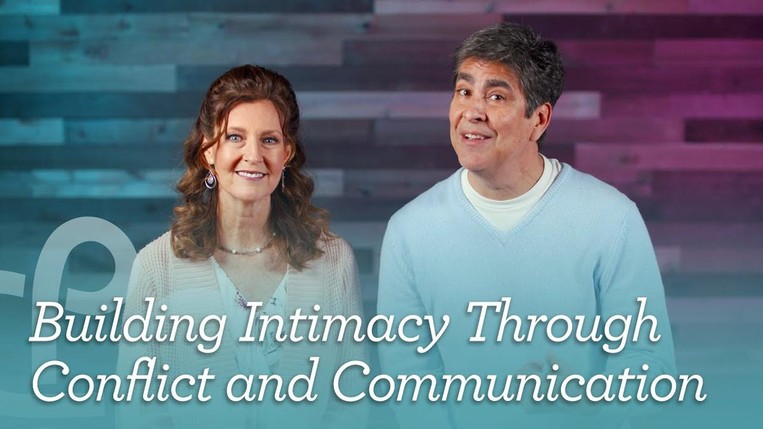5 Reasons to Communicate and Resolve Conflict from a Spiritual Perspective
Willa Williams, MA, LMFT, MA in Religion - July 18, 2017
Topic: Communication, Conflict

In our previous blogs, we have been examining the importance of the crucial relationship skills of communication and conflict resolution. We have discussed the possible reasons why we may not communicate or resolve conflict, and the reasons why it is beneficial for us to do so, including physical and psychological reasons. In this blog, we will now turn to exploring spiritual reasons why it is important to communicate and resolve conflict well.
1. Our feelings are a God-given part of us.
The first reason that it is important to communicate ourselves and resolve conflict, which involves us sharing our feelings, thoughts, wants and needs, is that our feelings are part of God’s design. They are a part of how God intentionally created us. Because of that, they are important and good!
Psalm 139:13-14 says, “For you created my inmost being; you knit me together in my mother’s womb. I praise You because I am fearfully and wonderfully made; your works are wonderful, I know that full well.”
These verses remind us that we are wonderfully and intentionally made, which includes our emotions and feelings.
2. God wants us to communicate with Him!
Part of our spiritual journey and growth involves us spending time with the Lord, listening to Him and praying to Him. However, it is not just about us partaking in a discipline that will assist in our spiritual growth. It is also about developing our relationship with God, a God who asks us to come talk with Him!
“Come now, let us reason together,” says the Lord. “Though your sins are like scarlet, they shall be as white as snow; though they are red as crimson, they shall be like wool” (Isaiah 1:18). God desires for us to come to Him and share with Him. He wants us to share our burdens and cares with Him, because He cares for us so much!
Furthermore, we have a premiere example Jesus, who is God Incarnate and our ultimate model. All throughout the Gospels, we see that Jesus intimately communicated with his Father. That certainly is an example that we can emulate and trust.
3. We are called to speak the truth.
At times, we do not like to be vulnerable and communicate ourselves for a variety of reasons, as we discussed in the first blog of this series. Maybe we don’t want to rock the boat or make things worse. Maybe it would just take too much effort, and we are unsure of how the other would respond.
However, Ephesians 4:15 tells us that “...speaking the truth in love, we will in all things grow up into Him who is the Head, that is, Christ.” We are called to speak truth in a loving way. If we don’t, the other person may never be aware of issues, have the chance to repair a broken relationship, or gain some personal insight. As we speak truth in a loving way, we will grow in spiritual maturity.
4. We are called to reconcile with others.
In the Sermon on the Mount, Jesus tells us that, “...if you are offering your gift at the altar and there remember that your brother has something against you, leave your gift there in front of the altar. First go and be reconciled to your brother; then come and offer your gift” (Matthew 5:23-24).
This passage shows that we are called to reconciliation. However, in order for us to reconcile with another, we are going to have to communicate and resolve conflict with our “brother,” “sister,” or spouse. Reconciliation by its very nature involves communication and conflict resolution!
Jesus shows us how important reconciliation truly is. It is more important than our gifts and sacrifices, because we are called to leave them on the altar until we have reconciled things with another. Therefore, we actually have a Biblical mandate to communicate and resolve conflict!
5. We are practicing loving actions by communicating and resolving conflict.
When you think about it, communication and conflict resolution are, in reality, loving actions. We want to make things right with our spouse, or with another person, and we want to be emotionally close to them. As a result, we are willing to take the risk of being vulnerable because they are that important to us! They are that important to us; how they think and feel are that important to us. We let them know their importance to us by sharing with them, listening to them, and working things out with them. Of course, how we do that is of utmost importance!
In this series of blogs, we have looked at reasons why we don’t communicate and resolve conflict. We have looked at reasons why we should communicate and resolve conflict, from a physical, psychological, and spiritual perspective. In our next blog, we will look at how we can communicate and resolve conflict in a safe, loving, and effective way!

Willa Williams, MA, LMFT, MA in Religion
Willa Williams is a former missionary and current Licensed Marriage and Family Therapist who has been married for almost 40 years and has two amazing sons and two lovely daughters-in-love. She works at the Biola Counseling Center as a therapist and is the Consulting Therapist at the Biola Center for Marriage and Relationships where she also co-teaches a class on Christian perspectives on marriage and relationships.
Willa has a Master of Arts in Religion from Trinity Evangelical Divinity School (Deerfield, IL) and a Master of Arts in Counseling in Psychology from Trinity International University (Deerfield, IL). She is Level 3 Trained in the Gottman Method of Couples Therapy, a Certified Prepare/Enrich Facilitator, and graduate of the Couples Institute, Level 1 and 2. Before coming to Biola, she served overseas at the Spanish Bible Institute in Barcelona, Spain, where she taught a class on counseling skills for pastors and served as the staff therapist for the students. She has a passion for healthy relationships and enjoys working with couples as well as individuals. She appreciates the immense impact that healthy marriages and relationships have on couples as well as future generations.

 How To Deal With Your Partner's Faults
How To Deal With Your Partner's Faults
 What to do When You Parent Differently
What to do When You Parent Differently
 What Our Listeners Are Asking
What Our Listeners Are Asking
 Building Intimacy Through Conflict and Communication
Building Intimacy Through Conflict and Communication